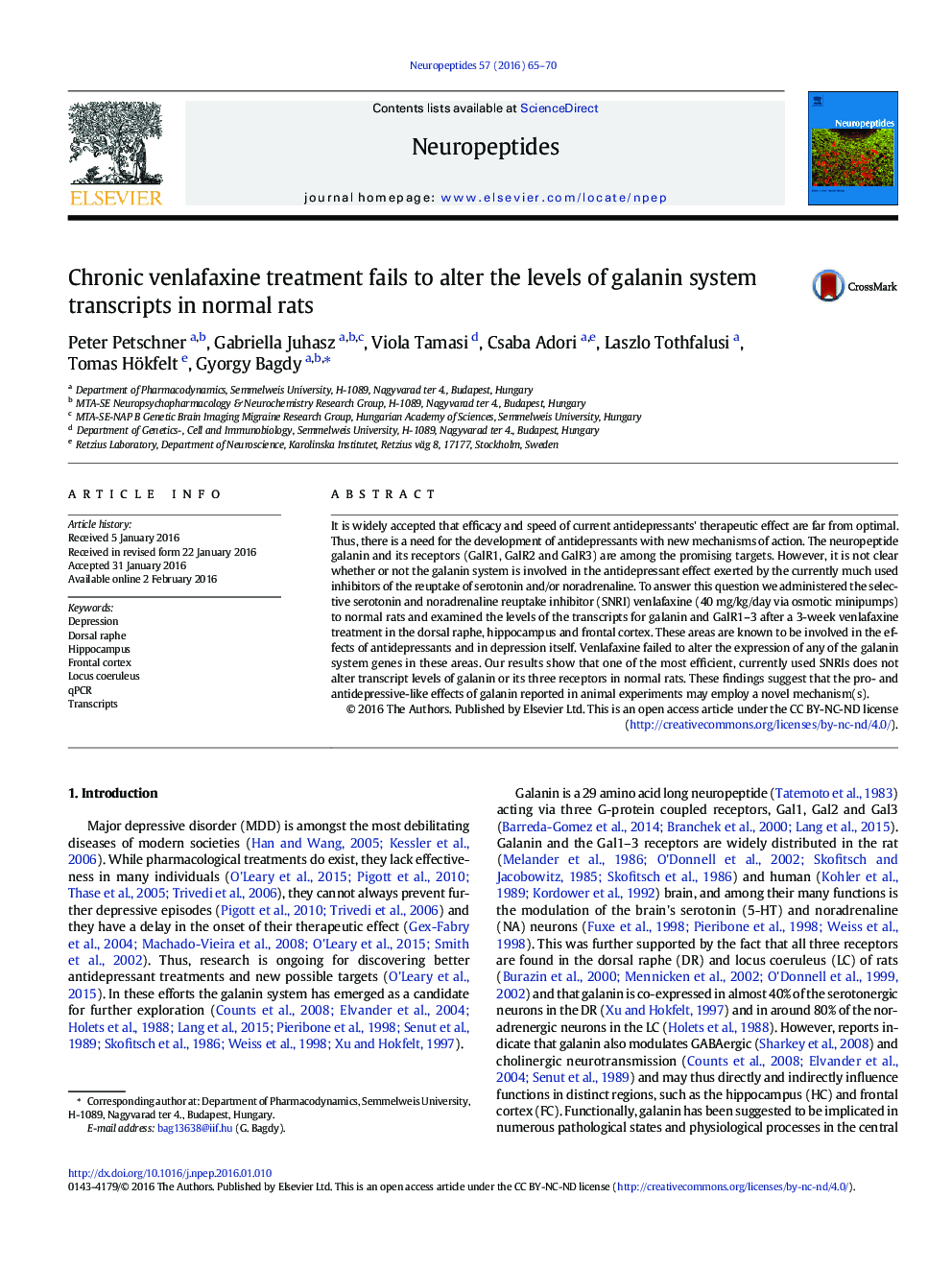| Article ID | Journal | Published Year | Pages | File Type |
|---|---|---|---|---|
| 5904087 | Neuropeptides | 2016 | 6 Pages |
â¢Galanin system is an accepted target for development of new antidepressants.â¢Some data suggest that current antidepressants could act via the galanin system.â¢Venlafaxine is one of the most effective current antidepressants.â¢Venlafaxine did not alter expression of galanin, GalR1-3 receptors or alarin.â¢Selective modulations of the galanin system remain promising targets.
It is widely accepted that efficacy and speed of current antidepressants' therapeutic effect are far from optimal. Thus, there is a need for the development of antidepressants with new mechanisms of action. The neuropeptide galanin and its receptors (GalR1, GalR2 and GalR3) are among the promising targets. However, it is not clear whether or not the galanin system is involved in the antidepressant effect exerted by the currently much used inhibitors of the reuptake of serotonin and/or noradrenaline. To answer this question we administered the selective serotonin and noradrenaline reuptake inhibitor (SNRI) venlafaxine (40Â mg/kg/day via osmotic minipumps) to normal rats and examined the levels of the transcripts for galanin and GalR1-3 after a 3-week venlafaxine treatment in the dorsal raphe, hippocampus and frontal cortex. These areas are known to be involved in the effects of antidepressants and in depression itself. Venlafaxine failed to alter the expression of any of the galanin system genes in these areas. Our results show that one of the most efficient, currently used SNRIs does not alter transcript levels of galanin or its three receptors in normal rats. These findings suggest that the pro- and antidepressive-like effects of galanin reported in animal experiments may employ a novel mechanism(s).
